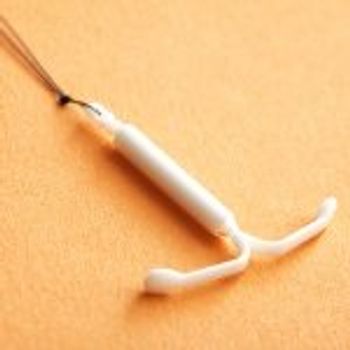
Readers respond to an editorial from Dr. Lockwood on hormonal contraception and breast cancer as well as an editorial on burnout and depression in medical students.

Readers respond to an editorial from Dr. Lockwood on hormonal contraception and breast cancer as well as an editorial on burnout and depression in medical students.

Since hormonal contraception was introduced in the 1960s, the risks and benefits of the drugs have been the subject of considerable, and at times acrimonious, debate.

This article reviews how migraines in women are impacted by the fluctuating hormone levels they experience throughout their lifecycle.

Expert commentary on Committee Opinion No. 668: Menstrual Manipulation for Adolescents With Physical and Developmental Disabilities.

2016 was a year of change and new challenges. Find out what the top news stories of 2016 were.

Obesity, headaches, PID among conditions that warrant special consideration.

Some states are implementing dispensing laws, and others may follow suit. What does this mean for access?

A new study wonders if allowing a longer labor could help reduce rates of cesarean delivery. Plus: Does placing a cervical pessary prevent preterm birth? Also, a look at why teenaged LARC users aren't using condoms for STI prevention.

The results of a new study on Vitamin D and pregnancy outcome. Plus, Is foam the future of nonsurgical female sterilization? And: Choosing a GnRH dose for ovarian stimulation

Regulations are becoming more complicated and vary by state.

A new study examines the efficacy of a single dose of the HPV vaccine for preventions. Plus: What's the optimal time for inserting a contraceptive implant after delivery? And: A case study wonders if NIPT can help diagnose cancer in the mother.

Following confusion, the White House has clearly defined which contraceptive methods are to be covered at no cost to patients. Additionally, are EHR prompts the answer to timely completion of HPV vaccines? How are very premature infants surviving?

NASPAG 29th conference featured research on the increased risk of complications in teen pregnancy, the desire on over-the-counter contraception, and a tool to help identify patients with menorrhagia.

Blame autocorrect for misinformation related to an IUD, or intrauterine device.

New research highlights a way to reduce the rate of unintended pregnancies, but it requires two changes to current policy.

Elizabeth Miller, MD, PhD, discusses her article in the February issue of Contemporary OB/GYN on sexual coercion.

In the latest volley in the ongoing controversy regarding the safety of some forms of hysterectomy, the country’s largest insurer will soon begin requiring prior authorization for many of the procedures. The action, taken by UnitedHealthCare, takes effect April 6, 2015 and does not apply to outpatient vaginal surgeries.

Another option for long-term reversible contraception has been approved, but this one will be available to many public health clinics as well.

Hormonal intrauterine devices (IUDs) and implants effectively prevent pregnancy at least 1 year beyond their approved duration of use.

A form of assisted reproductive technology that could make it possible for women with mutations in mitochondrial DNA to give birth to children free of mitochondrial disease has been approved by UK’s House of Commons. A Food and Drug Administration (FDA) committee is considering granting similar approval for use of the technique-known as oocyte modification or three-parent gene therapy-in the United States.

Two experts debate whether unrestricted access to emergency contraception has really translated into awareness about how it works and how to get it.

Patients who have experienced intimate partner violence have reported that positive, supportive encounters with healthcare providers have helped them to improve their situations.

A valuable infographic showing types of contraception used by American women of various ages, education levels, and ethnicities.

A new Danish study suggests that there may be a link between use of hormonal contraceptives and glioma, a rare brain tumor.

Opioid use in women of reproductive age should be better monitored, and physicians should be more judicious in their prescribing, says a CDC report.